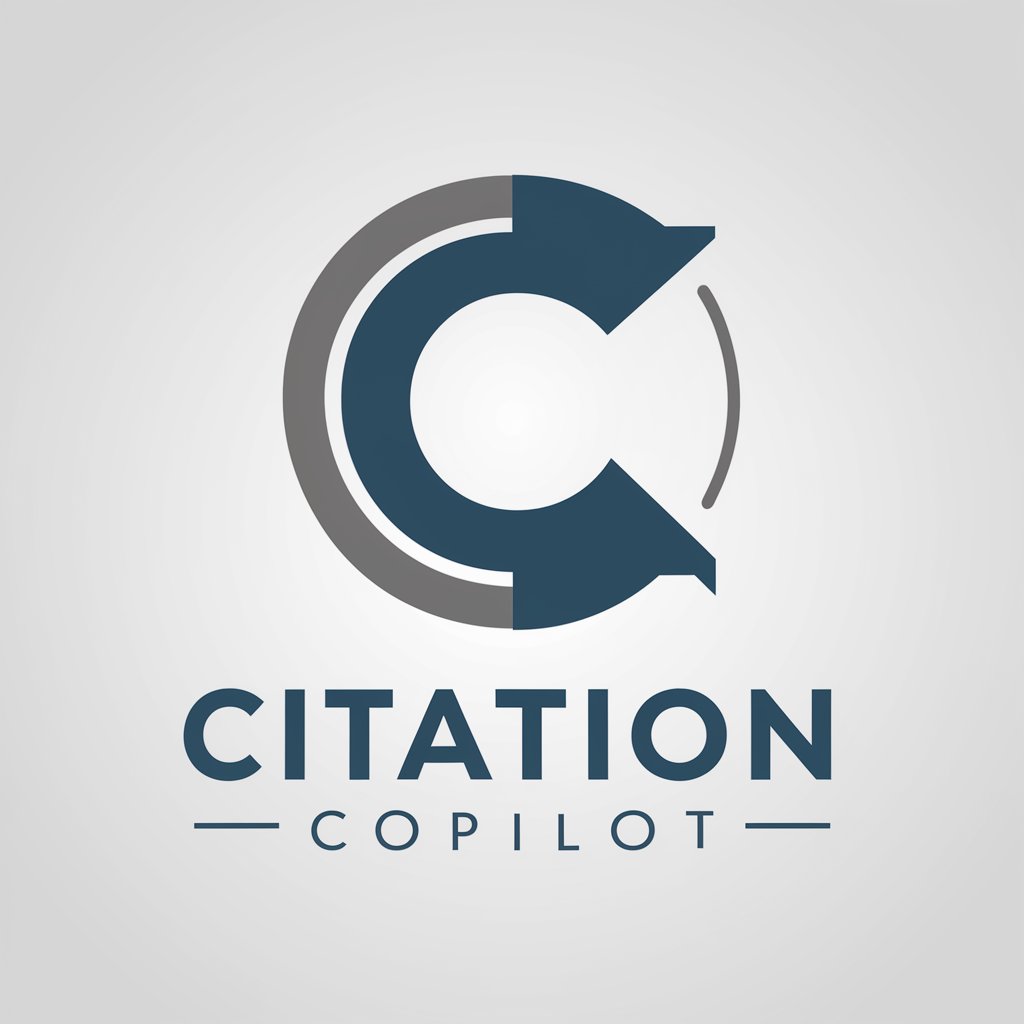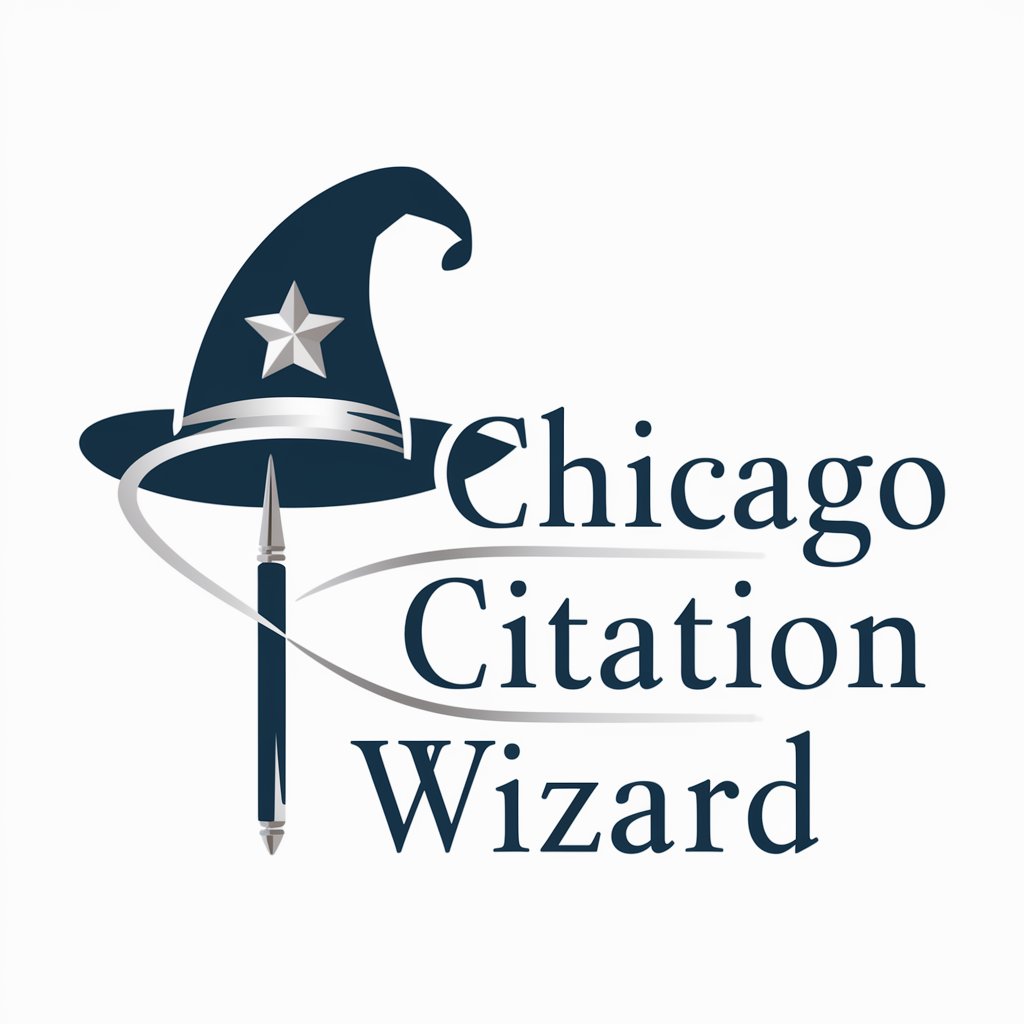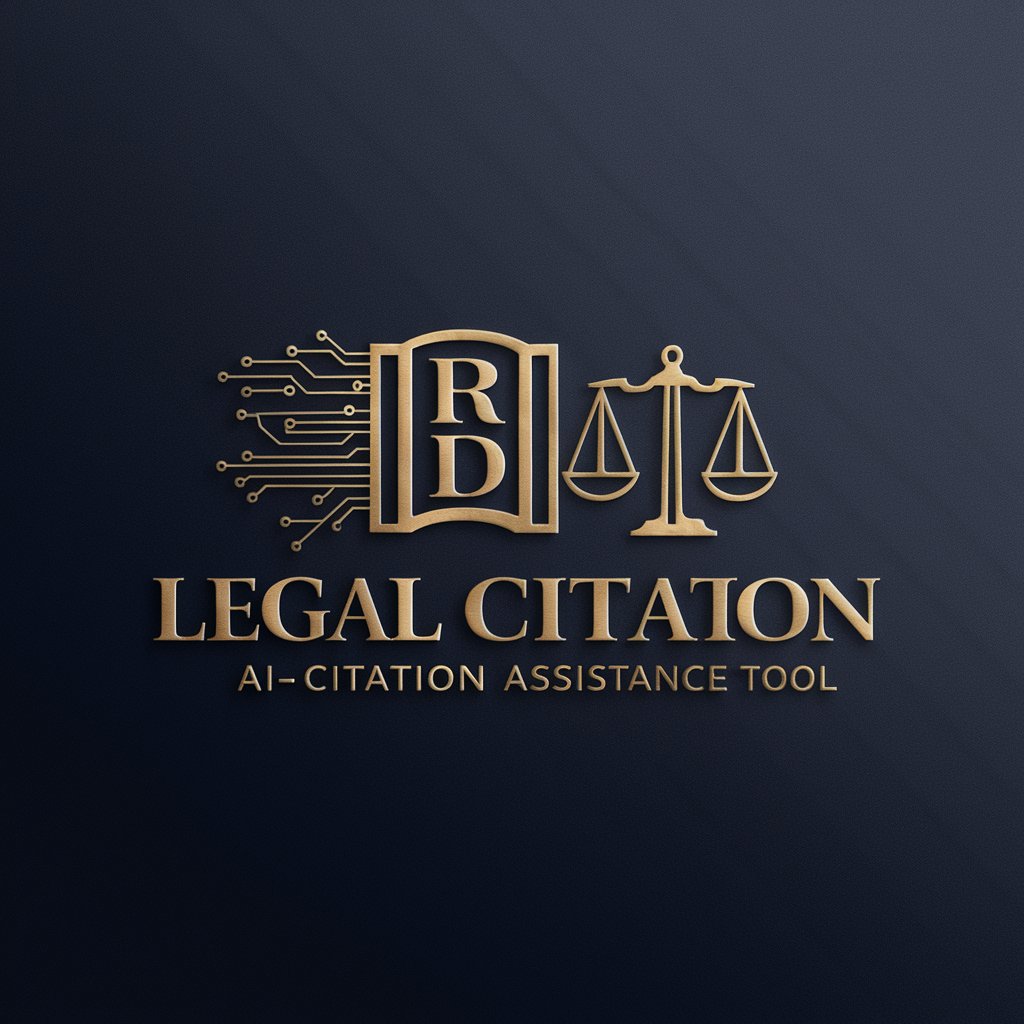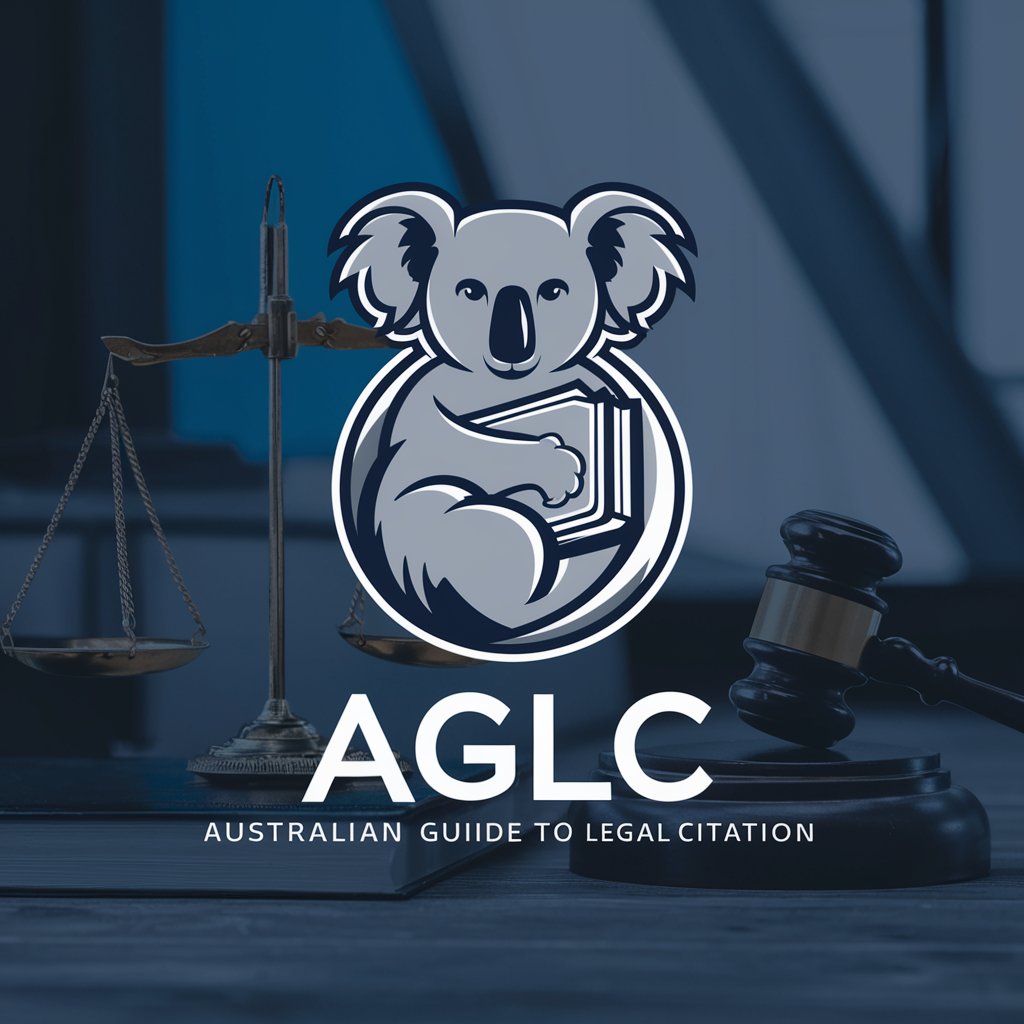
OSCOLA Citation - Easy Legal Citation Helper
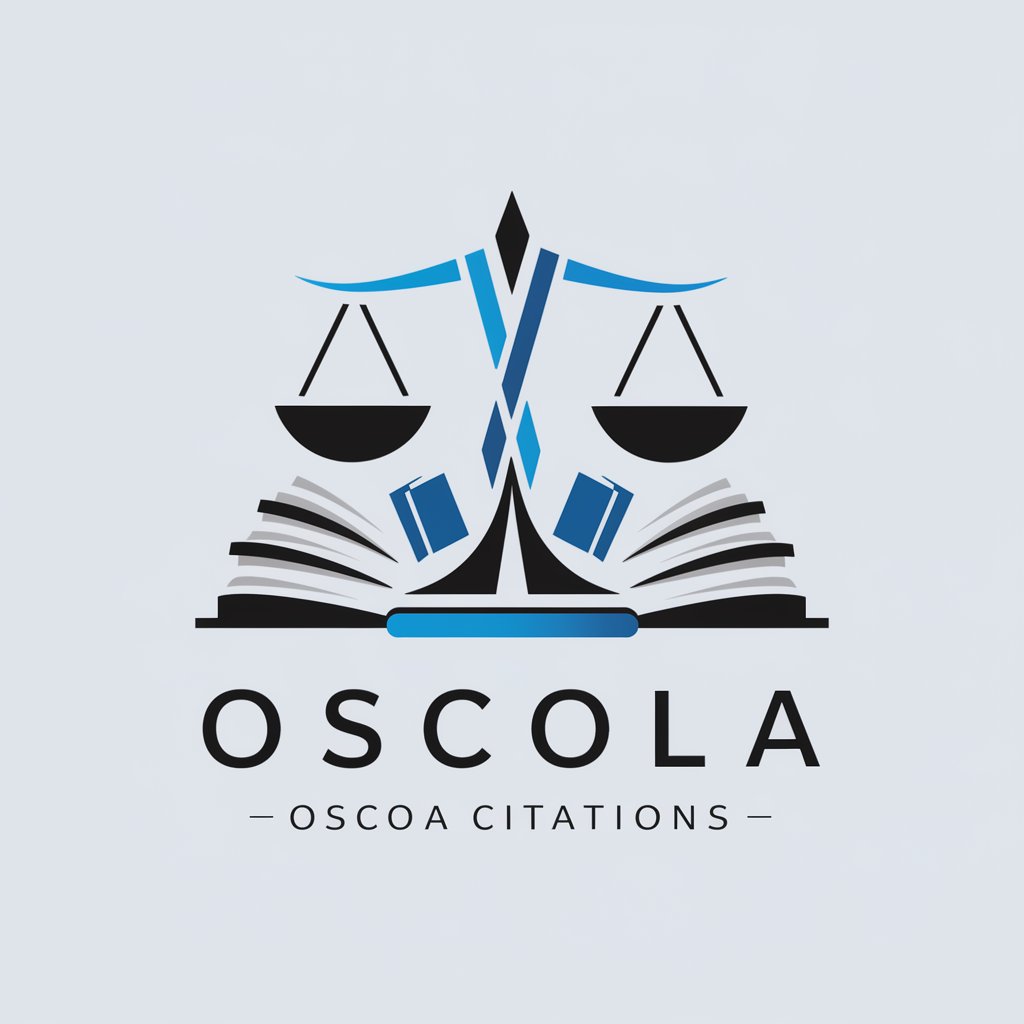
Hello! How can I assist you with your OSCOLA citations today?
Streamlining Legal Citations with AI
Generate an OSCOLA citation for...
How should I cite this case according to OSCOLA?
What is the proper OSCOLA format for...
Can you help me with an OSCOLA citation for this journal article?
Get Embed Code
Introduction to OSCOLA Citation
The Oxford Standard for the Citation of Legal Authorities (OSCOLA) is a widely recognized citation system specifically tailored for legal documents, primarily used in the United Kingdom. It was initially devised in 2000 at the University of Oxford and has since been adopted by legal professionals and academic institutions both domestically and internationally. OSCOLA is designed to facilitate clear, consistent, and easy-to-follow references to legal sources, including cases, statutes, and secondary materials like books and journals. This system emphasizes minimal punctuation and adheres to a footnote citation format to maintain a clean text body while providing detailed source references at the bottom of each page. For example, a case citation under OSCOLA would appear as 'Corr v IBC Vehicles Ltd [2008] UKHL 13, [2008] 1 AC 884,' where it provides a straightforward reference to both the neutral citation and the law report. Powered by ChatGPT-4o。

Main Functions of OSCOLA Citation
Citation of Primary Sources
Example
Case citation: 'Donoghue v Stevenson [1932] AC 562.'
Scenario
Used in legal documents and academic papers to reference cases directly and precisely, allowing readers to locate the original source material quickly.
Citation of Secondary Sources
Example
Book citation: 'Thomas Hobbes, Leviathan (first published 1651, Penguin 1985) 268.'
Scenario
Essential in academic writing, particularly in legal studies, to attribute ideas and theories to their original authors, ensuring academic integrity and scholarly dialogue.
Consistency and Clarity
Example
Uniform use of citation format across different types of sources.
Scenario
Aids in maintaining professional standards in legal documentation and academic writing, enhancing readability and understanding for all readers.
Ideal Users of OSCOLA Citation
Legal Professionals
Lawyers, judges, and legal clerks who need to prepare court documents and legal briefs would benefit from OSCOLA's precise rules for citing legal sources, ensuring accuracy and authority in legal arguments.
Academic Researchers and Students
Individuals in the field of legal studies, including researchers and university students, use OSCOLA for dissertations, papers, and publications where proper sourcing is critical to the credibility and academic integrity of their work.

Using OSCOLA Citation
Visit yeschat.ai
Start your experience by accessing yeschat.ai, offering a free trial that requires no login or subscription to ChatGPT Plus.
Identify the Source
Determine the type of source you need to cite (e.g., cases, statutes, books, journals), ensuring you have all pertinent details such as author names, titles, publication year, and pages.
Format the Citation
Use the OSCOLA citation guidelines to format your reference. Ensure you adhere to specifics such as italicisation for case names and minimal punctuation.
Check Examples
Refer to examples from the OSCOLA guide to match your citation format correctly, especially for complex sources like legal cases or older statutes.
Final Review
Review your citations for consistency with OSCOLA standards, checking for correct sequence in footnotes and proper use of 'ibid' for repeated citations.
Try other advanced and practical GPTs
AI Code Generator
Streamline NLP with AI-powered Coding

Physics Problem Solver
Solve Physics with AI Precision

Python CoPilot
AI-Powered Python Programming Assistant

Book Cover Design Image Generator
AI-Powered Book Cover Magic

Workfront/ProofHQ/Fusion Assistant
Enhance efficiency with AI-powered project management

以图攻图
Empowering Artistic Vision with AI

Haiper - Creative Prompt Genius
Visualize Creativity with AI

PDF Summary
Transform PDFs into concise summaries
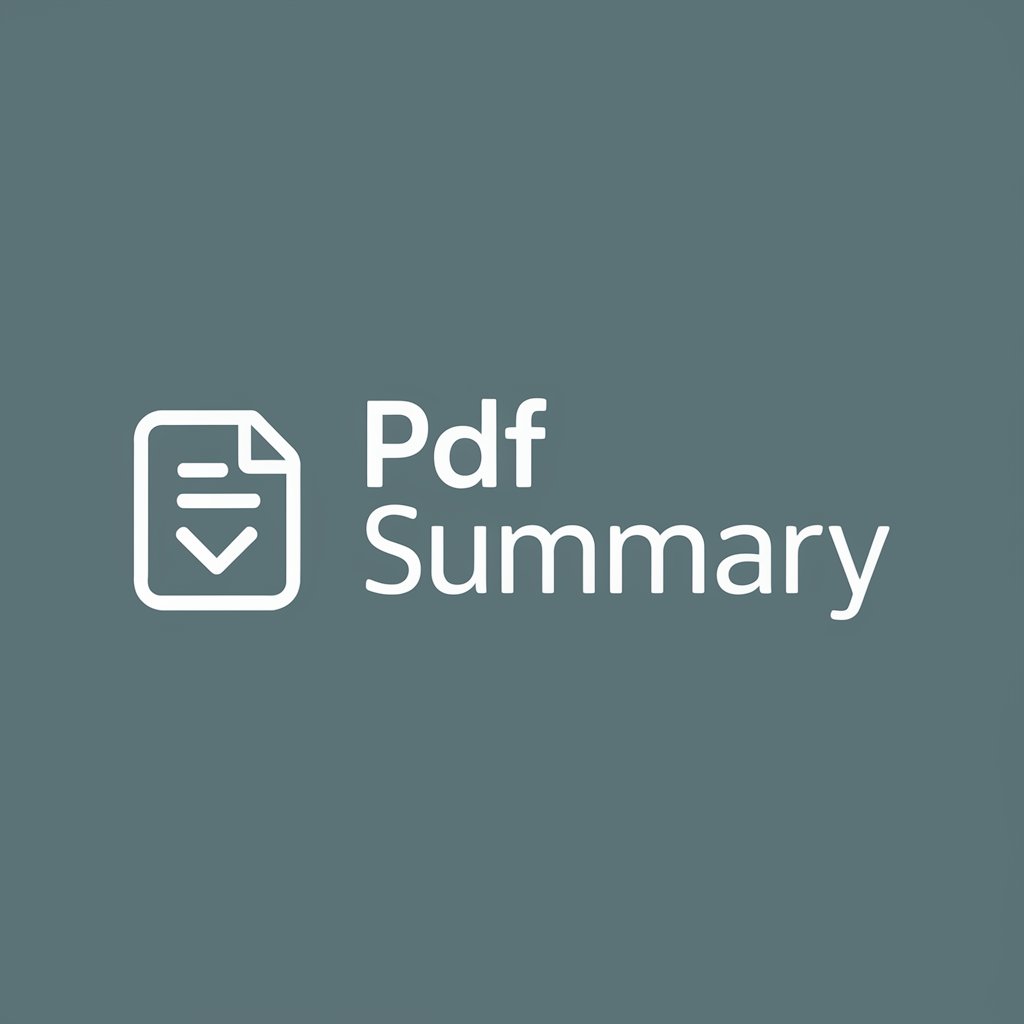
Code Companion
Code smarter with AI-powered assistance

Israel InfoScope
Unveiling Israel's Story through AI

Code Mentor
AI-powered coding guidance and support

Article Fact Checker
Empowering Accuracy with AI

FAQs about OSCOLA Citation
What is OSCOLA?
OSCOLA, the Oxford Standard for the Citation of Legal Authorities, is a guide designed to standardize the citation of legal cases, legislation, and literature, ensuring clarity and consistency in legal documents.
How do I cite a UK Supreme Court case in OSCOLA?
To cite a UK Supreme Court case, provide the case name, followed by the neutral citation, and then the law report citation. For example, 'Corr v IBC Vehicles Ltd [2008] UKHL 13, [2008] 1 AC 884.'
What are the key components of a statute citation in OSCOLA?
A statute citation should include the short title of the Act and the year it was passed. If relevant, include the section and subsection, like 'Human Rights Act 1998, s 15(1)(b).'
Can I use OSCOLA for non-UK legal materials?
Yes, OSCOLA provides guidance for citing international and foreign legal materials, including cases from the EU and the US, ensuring comprehensive coverage beyond UK sources.
What should I do if a source has no author?
If a source such as a government report has no individual author, cite the government department as the author, and follow the rest of the OSCOLA rules for formatting.


